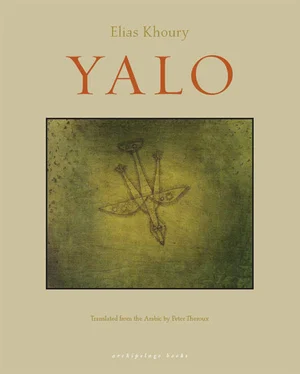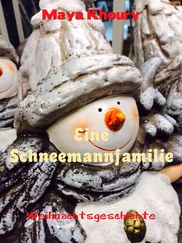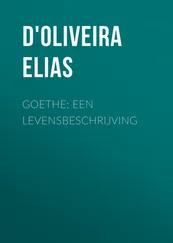When he went back to his house, below the villa in Ballouna, he looked in the mirror for a long time and saw how sorrow had formed circles around his eyes. He imagined Shirin’s small, honey-colored eyes and found that the sorrow in her eyes was different from his. His sorrow formed circles around his eyes, whereas hers traced fine lines that spread out from her pupils. He decided to marry her.
Before seeing her again in the Café Chatila, he had not known. He went to meet Shirin as if he were continuing with a game he’d started, not knowing where it would take him, feeling toward her a love that emanated from his very ribs and seeped into his lungs, closing in, smothering him, and making him crave air. After he left her, his pocket filled with dollars, he drove home feeling smothered. He opened the window, breathing noisily, and when he reached the bend at Ballouna covered with pine trees, he parked the car and got out and began to devour the air. It was as if this love — he did not how or from where it had come to him — had cut off his air supply. He gulped down the piney air, drinking and drinking it in, until he felt sated and his blood began moving again. He went back to his car, drove home, and tried to forget. But after the meeting at the seafront café, that was when he decided that Shirin would be his wife.
When Yalo discovered that when he was with her he craved fish, he invited her to the Restaurant Sultan in Maameltein. He told her about the restaurant on the phone, how he had gone there once with Monsieur and Madame, and how they had the finest fish dishes, especially the small red mullet, better than any fish in the world, and cuttlefish cooked in its own ink. He told her that the cuttlefish wrote in ink in the sea and that this sea creature was the world’s first writer.
She agreed to go. They met in front of her place and she rode with him in his car to Maameltein. This was the day Yalo was convinced that she loved him. It was the first time she agreed to leave her car behind to go with him. Usually it was the opposite, leaving him feeling that she would never in her life agree to ride beside him and let him drive. But that beautiful day in May she agreed to it.
She rode beside him and they went to the Restaurant Sultan, ate fish, and drank arak.
After they finished eating, they went down to the pebbly beach and he made her see the bay of Maameltein through new eyes. That’s what she told him. She said that he gave her new eyes to see the world through. She laughed a lot, and let him steal a kiss on her lips, but when he wrapped his arm around her waist to pull her inside his kiss, she slipped away and said no.
But she ate the red mullet, not hesitating the way she had with the birds. Yalo told her to eat the whole little fish: “Cover it with lemon and garlic sauce and eat the whole thing.” When she asked him about the head and the fish bones he smiled, took a fish, covered it with sauce, and gobbled it down. She did as he did and that was the first time in her life she had eaten a fish this way.
She ate with unusual appetite, drank arak, licked garlic sauce from her long, cold fingers, and laughed. Then the platter of cuttlefish arrived and Yalo announced that the real meal had finally begun.
She said that she would not even touch the black broth filled with pieces of the sea creature.
“Don’t touch it,” said Yalo. “I’m going to feed you.”
He took a piece of bread, dipped it in the ink, and ate it. “Before the cuttlefish, you have to taste the ink.”
“You’re eating ink?” she exclaimed.
“The ink is the tastiest thing. Try it.”
He took a knife and fork and cut a small piece of the sea creature, then put the morsel of cuttlefish into a piece of bread, dipped it in the ink, and offered it to Shirin, who obediently opened her mouth. When she began to chew the morsel, she closed her eyes and started humming a melody.
After the first morsel, Shirin got into the mood of the cuttlefish, licked the lemon and garlic-spiced ink from her lips, and thanked him for making her taste the most delicious food in the world. She was affectionate with Yalo in his car, allowing him to hold her hand on the Dbayyeh highway after the Dog River tunnel, and when they were in front of her house in Hazemiya, she let him place a long kiss on her lips, then got out of the car and bent over the window to tell him good-bye.
That was the day Yalo was sure he would marry her.
Yalo told himself in the mirror when he was shaving the next morning that he would marry Shirin; he would buy all the cuttlefish in the world and eat them with her, and live in her house. He had not said the words “her house,” but when he thought about marriage and the house and children, he saw the entrance to her building and the sycamore tree on the sidewalk opposite and imagined himself under that tree, playing ball with a blond child speaking French. He remembered his grandfather and wondered how he would speak with his grandson’s son, and in what language?
In his last days, his grandfather had stopped speaking Arabic and gone back to his mother tongue. He began to spend his time alone in his room, with a stack of papers by his bed. He copied the Syriac poems of Mar Ephraim and said that Mar Ephraim was a great poet and that he regretted that his only grandson was half illiterate, knowing only Arabic and deciphering Syriac letters only with difficulty.
“Come here and learn something, boy, I want you to become a writer like me.”
Yalo laughed inwardly and said, “Only you’re not writing, Grandfather, you’re copying Mar Ephraim’s poems. You’re not the author.”
“But I am Mar Ephraim,” replied his grandfather, smiling at the foolishness of his grandson, who did not realize that all the writers in the world were copyists, that there was in the whole world only one book. This unseen book was not written from human inspiration but of infinite parts that revealed themselves to novelists and poets who would copy them down and rearrange them anew.
Yalo came closer to his grandfather and tried to read.
“Do you understand?” asked his grandfather.
“ Eluho hab yulfuno ,” said Yalo as he stared at the words. “Kind of,” he replied, “but why go to the trouble, Grandfather?”
Here the cohno went into his philosophy of books. He believed that books were like icons. Books were the windows that we open onto the infinite, and through them we can look into the other world. “That is, we don’t see everything, we see fragments, as if we are peeking.”
“Grandfather, people don’t peek at books, people peek at women.”
“Books are nicer than women, my boy, what do you know about books and women?!”
His grandfather, covered from head to toe in his black robe, and with his jar of ink placed on the table beside him, resembled a sea creature giving off the smell of ink.
Yalo wanted to tell Shirin about his grandfather, who resembled a cuttlefish, and peeking at books, and women who were like open books through which one might peek into the infinite, but he didn’t tell her. Ideas vanished from his head when he was with her. He would begin to speak but then forget, and then knew nothing.
That was the story of his life.
The story was he did not say anything, he stammered in front of this girl; he became a little boy again, stuttering, forgetting, hesitating. Shirin was afraid of his stammering, and in listening to him, she sensed that his words could not be put together into a coherent sentence; she heard random words that did not belong beside each other on the branch of speech.
“Why are you talking that way?” she asked him.
“Don’t you like my talking?” he answered her.
“Of course, of course, that’s not what I meant. I don’t know.”
Читать дальше












